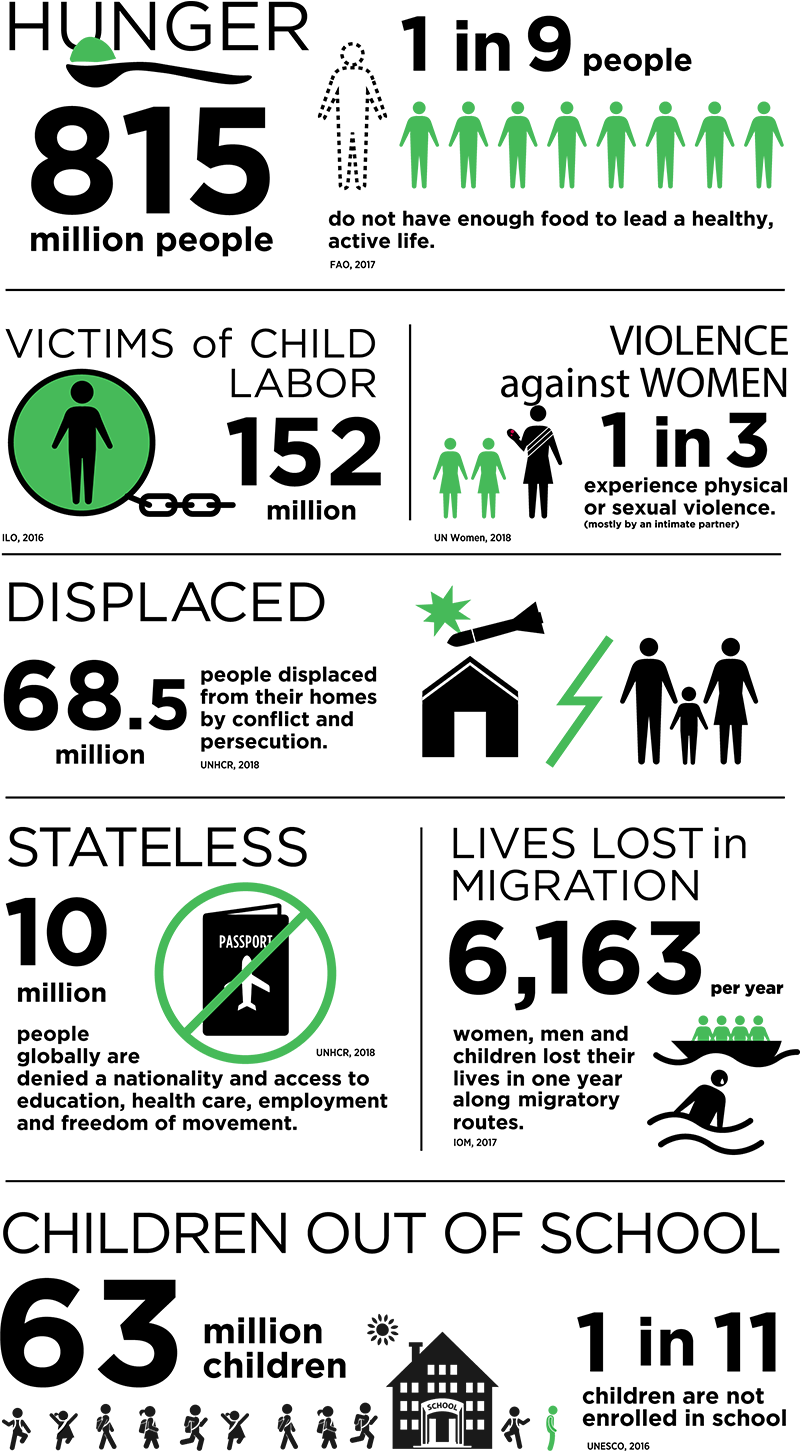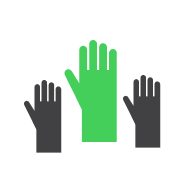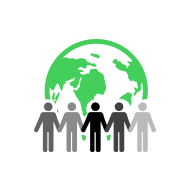Why Human Rights
We live in a world of challenges and conflicts. Many people are denied their human rights and fundamental freedoms because of grotesque inequalities and deprivation, and violence and oppression, which prevents them from leading a life of dignity.
“We all belong to the one human family and each of us is equally deserving of dignity, respect and justice. Transmission of these core and universal values—and exploration of the implications these hold for our daily lives … that is the task of human rights education.”
Kate Gilmore, United Nations Deputy High Commissioner for Human Rights
Our world today
Our world today
Too many people are denied the chance to realize their worth and develop their potential. Our societies, in turn, are deprived of the contributions they might make. The following statistics highlight the gap between our shared ideals and the realities of our world. Women, children and minority or vulnerable groups who suffer from exploitation and oppression are disproportionately affected by human rights violations and abuses.


Raising awareness of human rights is the first step to counter and prevent human rights violations and abuses.
Raising awareness of human rights is the first step to counter and prevent human rights violations and abuses.
Human rights education fosters values that promote respect, inclusion, non-discrimination, participation, accountability and equality.
Human rights education empowers children and adults to:

Claim their rights more effectively and defend them more comprehensively

Make freer, more informed choices

Accept and appreciate diversity

Resolve conflict in nonviolent ways

Contribute responsibly to their communities and society at large
Human rights education is vital for social cohesion. It emphasizes our common humanity above our individual differences and so is fundamental in combating discrimination. Human rights education also fosters equality and equal opportunities for all.









